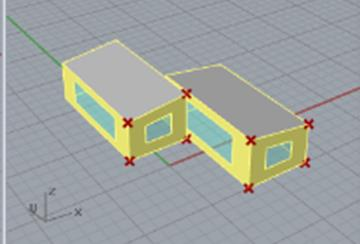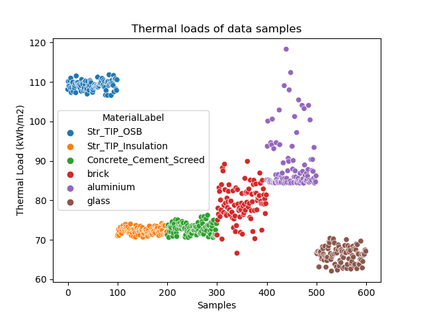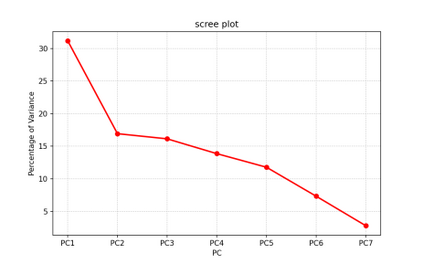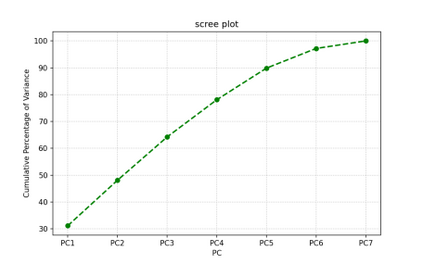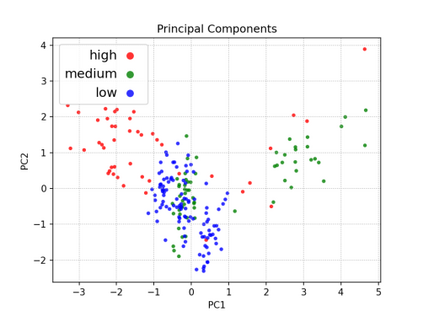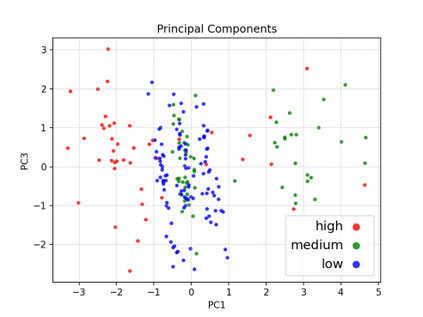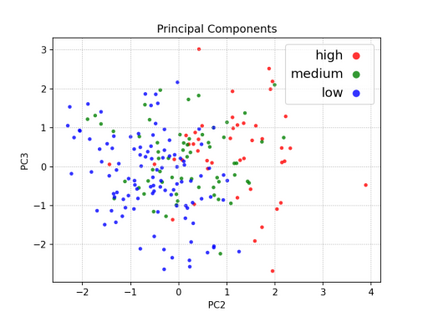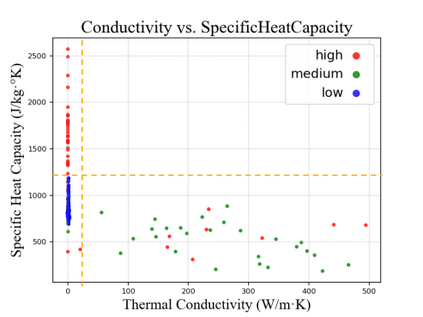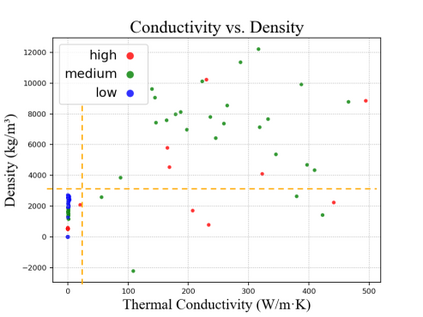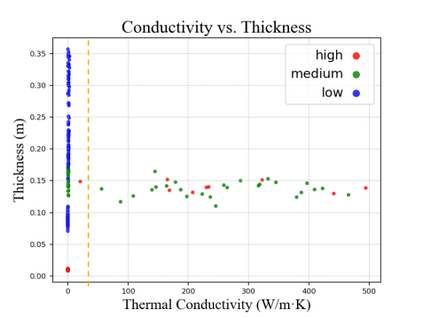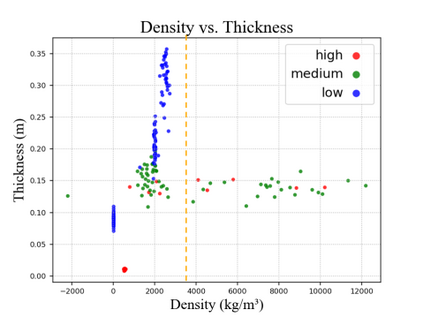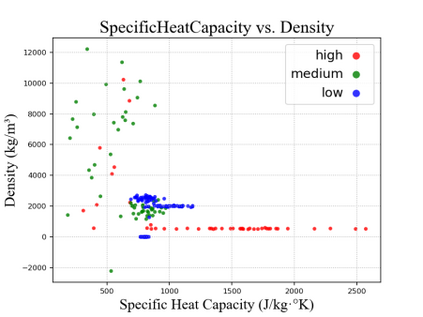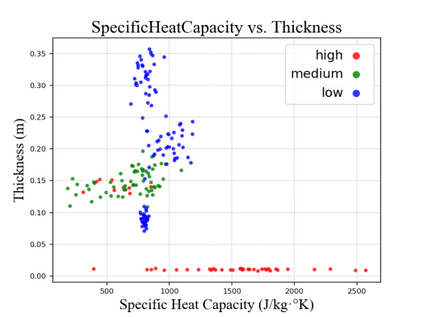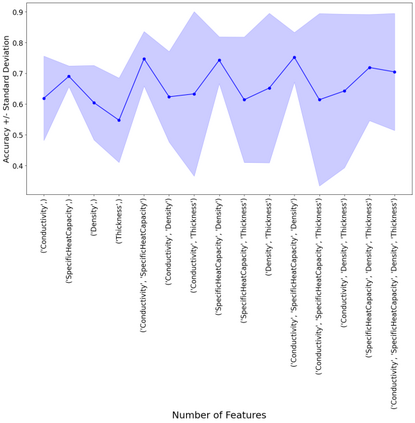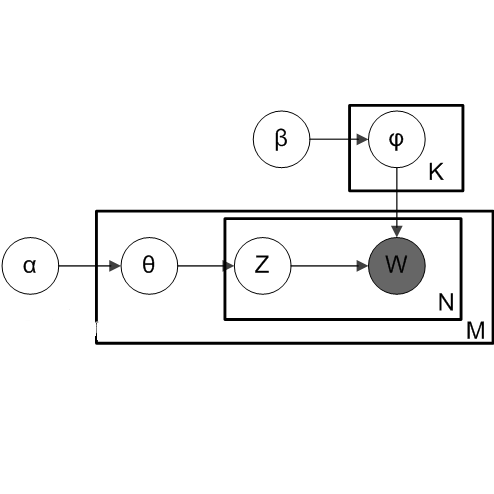Building energy performance is one of the key features in performance-based building design decision making. Building envelope materials can play a key role in improving building energy performance. The thermal properties of building materials determine the level of heat transfer through building envelope, thus the annual thermal energy performance of the building. This research applies the Linear Discriminant Analysis (LDA) method to study the effects of materials' thermal properties on building thermal loads. Two approaches are adopted for feature selection including the Principal Component Analysis (PCA) and the Exhaustive Feature Selection (EFS). A hypothetical design scenario is developed with six material alternatives for an office building in Los Angeles, California. The best design alternative is selected based on the LDA results and the key input parameters are determined based on the PCA and EFS methods. The PCA results confirm that among all thermal properties of the materials, the four parameters including thermal conductivity, density, specific heat capacity, and thickness are the most critical features, in terms of building thermal behavior and thermal energy consumption. This result matches quite well with the assumptions of most of the building energy simulation tools.
翻译:建筑能源性能是建筑基于性能的设计决策的关键特征之一。建筑封套材料可以在改善建筑能源性能方面发挥关键作用。建筑材料的热性能通过建筑封套决定热传输水平,从而决定建筑每年的热能性能。这项研究采用线性差异分析法(LDA)研究材料的热性能对建筑热负荷的影响。在特征选择方面采用了两种方法,包括主要组成部分分析法(PCA)和耗能特性选择法(EFS),在加利福尼亚州洛杉矶的办公楼设计假设设想有六种材料替代物。最佳设计替代物是根据LDA结果选择的,关键输入参数根据五氯苯甲醚和EFS方法确定。常设仲裁法院的结果证实,在材料的所有热性能特性中,包括热导率、密度、特定热能能力和厚度等四个参数是建筑热行为和热能消耗方面最关键的特征。这一结果与大多数建筑能源模拟工具的假设十分吻合。




